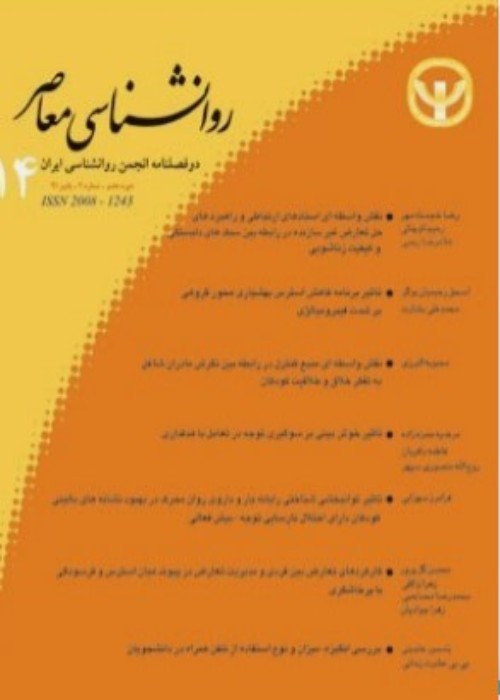Structural Modeling of Class Management based on Organization Climate and Teacher s Emotions with Mediating Role of Self-Efficacy and Emotional Creativity
The present study aimed to examine classroom management based on teacher emotion and the classroom organizational climate mediated by the teachers emotional creativity and self-efficacy. A descriptive-correlational method using structural equation modeling was employed. The participants included all members of academic staff of Farhangian University (N= 7000) of these, 416 individuals were selected via random cluster sampling method and participated in the study. Data were collected using the following five questionnaires: a) the questionnaire of teacher emotion (Chen, 2016), measuring emotions related to pleasure, sadness, anger and fear, b) the Class Management Questionnaire (Wolfgang & Glickman, 1986), measuring 3 factors (Educational management, people management and behavior management); c) the Teacher Self-Efficacy Questionnaire (Bandura, 1997), measuring self- efficacy for decision making and educational self-efficacy, disciplinary self-efficacy and self-efficacy for creating a positive atmosphere, and d) the Emotional Creativity Questionnaire (April, 1991), measuring 4 factors (Innovation, effectiveness, originality, and readiness), and e) the Organization Climate Questionnaire (Hoplin & Kraft, 2000), measuring 8 factors (spirit, harassment, intimacy, interest, consideration, distance, influence and dynamism, emphasis on production) and using 4 questions. Data were analyzed using structural equation modeling and Sobel test using AMOS 24 software. To examine the effect of the mediator variables, the boot stroop test was used. The findings revealed that teacher excitement and the classroom organizational atmosphere had a significant effect on classroom management, and this was mediated by the teachers self-efficacy and emotional creativity. Managing their anxiety and emotion and boosting their self-efficacy, teachers can have a significant impact of students learning. Therefore, educating teachers bases on such principles can contribute importantly to educating effective teachers.
- حق عضویت دریافتی صرف حمایت از نشریات عضو و نگهداری، تکمیل و توسعه مگیران میشود.
- پرداخت حق اشتراک و دانلود مقالات اجازه بازنشر آن در سایر رسانههای چاپی و دیجیتال را به کاربر نمیدهد.



